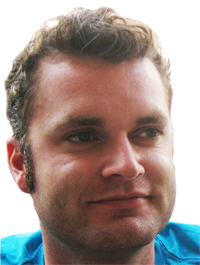Conférencier: Thomas Koelewijn, Ph.D.
Chercheur, Dept. of Otolaryngology-Head and Neck Surgery, section Ear & Hearing, Amsterdam Public Health Research Institute
Veuillez noter que cette conférence se fera en anglais.
Abstract
Following a conversation in a noisy environment is often effortful, especially for people with a hearing impairment. The pupil dilation response is a well-validated measure to quantify mental effort. Studies show larger pupil dilations in response to more challenging listening conditions (e.g. with interfering speech) compared to easier listening situations (stationary noise). Recent research shows that working-memory related processes and attention are associated with the pupil dilation response. In this talk, I will briefly introduce pupillometry as a method for quantifying listening effort and I will show results of recent studies on the effect of attention on the pupil dilation response during speech processing in noise. To what degree processes affect cognitive load differently in people with hearing loss compared to normally hearing adults with acquired brain injury will be addressed as well.
 Mini-bio
Mini-bio
Thomas Koelewijn (PhD) completed a Research Masters at Donders Graduate School for Cognitive Neuroscience in Nijmegen. Here, he researched the human Mirror Neuron system using EEG and MEG. Following his graduation in 2005, he achieved his PhD specializing in cross-modal spatial attention. This was supervised by Jan Theeuwes and Adelbert Bronkhorst at VU University, Amsterdam. Thomas finished his PhD in 2009 and is currently working as a senior researcher at the department of Ear & Hearing at VU university medical center, Amsterdam. His field is validating Pupillometry as a tool for measuring listening effort, while perceiving speech in different types of background sound. His main interest is in cognitive processes, such as working memory and attention, and how they affect listening effort.
